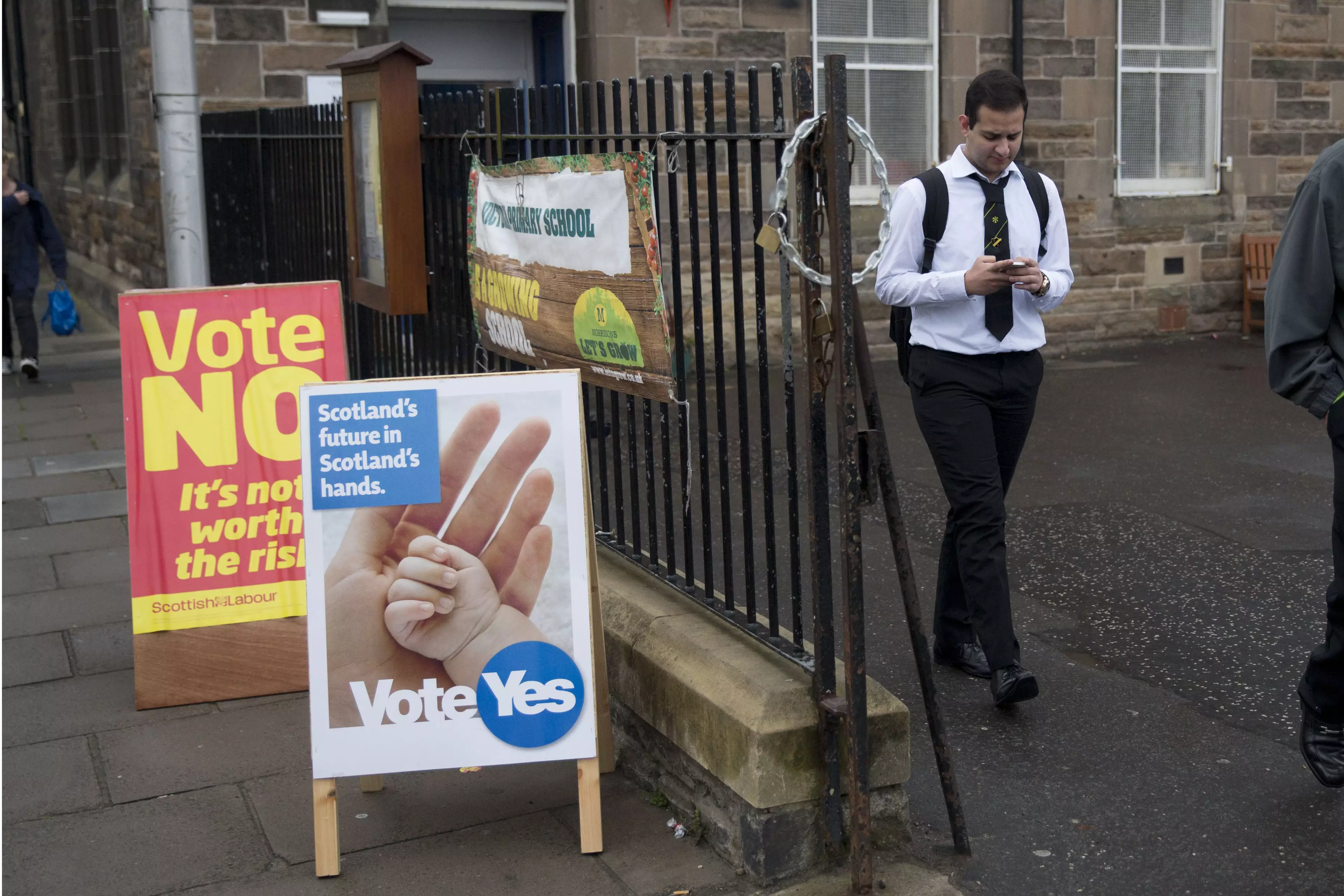
A school pupil after voting in the 2014 Scottish referendum. Credit PA
Is it stupid to follow the trend of ditching 16-year-olds on the dot of your 17th birthday; to join the rest of the country in routinely undermining them and their opinions, especially when it comes to big decision making? Or is it a healthy scorn that stops the state of Britain going to pot?
Scaremongers would have you believe - should 16-year-olds stick their nose in - that we'd be living in some hellhole where ageing rockers are replaced by knighted vloggers; where NOS is fruit and veg and social media is scripture.
Advert
As it stands, 16-year-olds cannot vote. They cannot contribute their voices to matters that invariably affect them. 16-year-olds are simply not 18-year-olds - the age we generally agree to be the foundation of adulthood.
What 16-year-olds can do, however, is get married, join the army and drive a car. They can be entrepreneurs or they can be murderers. They can achieve the same things 'older' people can. This surely makes them contenders for the electoral roll?
Not for some. Dissenters, like journalist Charles Moore, argue that 16-year-olds shouldn't have the vote simply because they don't pay tax. It's a reasonable point, but when you consider the amount of enfranchised citizens who don't work, it doesn't really hold up. So what's the real issue?
I think most people believe teenagers just don't 'get' politics. There are plenty of irresponsible 40 or 80-year-olds who couldn't tell the difference between Cameron and Corbyn, but few would question their involvement in the voting process. Teens, on the other hand, are constantly perceived as apathetic, disinterested, or unaffected by the issues at stake - even when that's not the case at all.
Advert

Young people make their voices heard during the Scottish referendum. Credit: PA
If you want concrete evidence of 16-year-olds actively engaging with the political process in a passionate and, most importantly, informed manner, you need only to look at Scotland.
The Scottish referendum of 2014 saw a turnout of 84%, one of the highest in the democratic world for any election or referendum in history. There was also a 75% turnout among 16 to 17-year-olds. Getting three quarters of teenagers to do anything is pretty impressive, so getting them to vote on the small matter of independence is an incredible feat. It seems that one way to get young people to care about politics, is to simply let them vote at an earlier age.
Advert
With another reasonably important referendum approaching, you have to wonder what would happen if 16-year-olds could get involved. It's natural for teens to want to venture beyond their surroundings after finishing a dozen years of compulsory schooling. If the current state of free movement really does get the once over in a post-Brexit UK, teenagers would find it trickier to travel to the Continent - often the one place they can often afford to go.
On that note, you'd assume they'd vote 'In'. Post-school Euro piss-ups aside, 16-year-olds would likely vote 'In' as a generational certainty. 63% of 18-30-year-olds want to stay in the EU, and an age group two years younger would probably want the same. The reasons why are hard to pin-point, but I'm sure many are more profound than the urge to get blazed in the 'Dam without needing a visa.
And if a Brexit results in the loss of 3 million jobs, as Nick Clegg has previously claimed, then they won't have the funds to go abroad at all. Again, that's a vote for 'In'.
Of course, it's all supposition, 16-year-olds might not think this at all. And it's hard to comprehend what they actually believe, seeing as no-one's supplying them a platform.
Advert
Teaching young people in education about a democracy that's ahead of them is good, but there's only so much they're going to listen to before wanting to run with that knowledge and act upon it, at a real ballot, on a real vote.
If you want young people to commit properly to politics, you have to stretch the theoretical involvement to a practical one. That should happen when you turn 16.
Words by Josh Teal
Featured Image Credit: